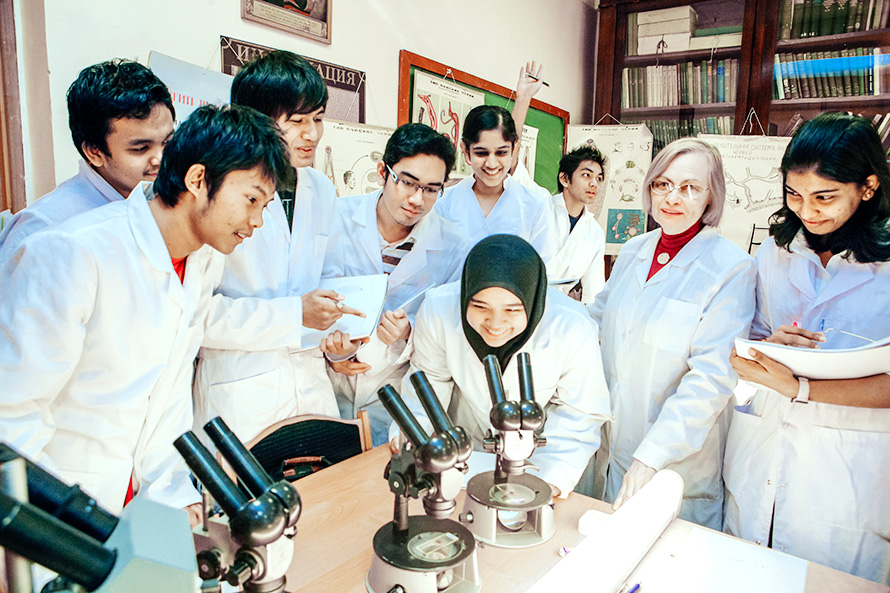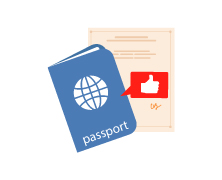Foreign nationals who graduated from medical universities in Russia or elsewhere can apply for Russian medical residency. This post-graduate education is essential in earning the specialist degree and beginning full-fledged practice. Except for general practitioners, medical residency is a must for future surgeons, neurologists, dermatovenerologists and other specialty physicians.
During the training, future doctors take field-specific courses at the university, take tests and examinations and have practice at the hospitals to which they have been assigned.
A majority of residency programmes are taught in Russian; English medium programmes are available, too. As a rule, senior students take courses and practice in Russian. You have to learn Russian in order to get into a Russian university and do well. Russian language courses are offered by Preparatory Departments for international students. The PD biomedical module enables a student to study Russian in the field-specific area as well as biology, chemistry and other subjects.
Russian universities offer two-year medical residency. At the end of the studies, doctors have to pass the examination to get a certificate and begin full-fledged practice in their field. To be admitted to residency at a medical university or school, both foreign and Russian nationals have to pass competitive selection.
Applying for Residency as International Student
According to Russian Healthcare Ministry instruction No 212, prospective residency students need to:
-
have previous higher medical or pharmaceutical education.
-
score at least 70 points in initial Russian Healthcare Ministry test.
-
apply to the chosen university within a year after passing the test.
Residency students are trained for standard specialties on university-designed programmes.
To be admitted to residency programme, you have to legalise your degree certificate issued abroad:
-
affix official seal to the document at the Russian consulate in your country to make legalisation valid in Russia.
-
apostille it for the Hague Convention signatory countries (they number over 100).
- the apostille service is provided at authorised universities or specialised national centres.
To apply for residency, you have to submit initial medical residency application in addition to your degree certificate. Required documents:
-
application for medical residency and specialty, notarised translation of original passport.
-
negative HIV test certificate and.
- photos (if requested by university).



























































